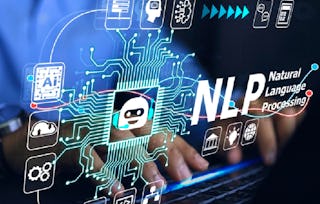The Machine Learning and NLP Basics course is a learning resource designed for individuals interested in developing foundational knowledge of machine learning (ML) and natural language processing (NLP).
This course is ideal for students, data scientists, software engineers, and anyone seeking to build or strengthen their skills in machine learning and natural language processing. Whether you are starting your journey or seeking to reinforce your foundation, this course provides practical skills and real-world applications. Throughout this course, participants will gain a solid understanding of machine learning fundamentals, explore various ML types, work with classification and regression techniques, and engage in practical assessments. By the end of this course, you will be able to: - Understand and apply core concepts of machine learning and NLP. - Differentiate between various types of machine learning and when to use them. - Implement classification, regression, and optimization techniques in ML. - Utilize deep learning models for complex problem-solving. - Navigate TensorFlow for building and training models. - Explore CNNs and RNNs for image and sequence data processing. - Explore NLP techniques for text analysis and classification. Learners are expected to have a basic understanding of programming. Familiarity with Python and AI fundamentals is helpful but not required. It is designed to equip learners with the skills and confidence necessary to navigate the evolving landscape of AI and data science, laying a strong foundation for further learning and professional growth.
















